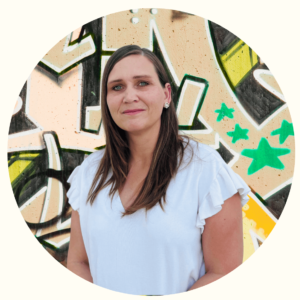In All Its Complexity

As you know from my blog posts on fish, dairy, water consumption and Whole30, I am particularly interested in the contribution that nutrition can make to healing T1D. As my healing has progressed, there have been several iterations of what I felt successful nutrition looked like for me at a given moment in time. So now I am taking this space to summarise where I have got to so far.
Relating To Food
During all these food-relating moments, the one challenge I keep coming back to is the one that centres around my weight. How can I eat in a way that is good for every aspect of my health – my diabetes management, my mental health, my body’s own needs. Just yet, I haven’t got this right.
Carbohydrate-Counting
The first awareness I had of the nutritional value of food came when I was five years old. My parents, instructed by my consultant paediatrician at that time, were encouraged to start teaching me about the carbohydrate content of various food groups.
In those days, carbohydrate-counting was all the rage! My paediatrician prescribed a carbohydrate count of 30 grams per meal. I would sit at the dining table with my dad, once my plate of food had been served, reciting phrases like ‘two egg-sized potatoes are ten’ and ‘one cup of milk is ten’ until I had worked out the grams of carbohydrates on my plate. I am sure this has given me my strong propensity for maths today and also my desire to wolf down food as quickly as I can after it has been served!!
I did this until I was maybe 9 or 10, when it went out of fashion and was replaced by the medical mantra ‘eat what you like and inject accordingly for it’ (as a ten year old, I definitely preferred this option!!). Then, wen I hit twenty years old, carb-counting came back into fashion in diabetes management and I got to counting all over again!! However, through all these years, I could never get to my ideal weight. Enter keto…

Dr Richard Bernstein’s ‘Diabetes Solution’… A Ketogenic Diet
The first successful method I found for losing excess weight was through Dr Richard Bernstein’s recommendations. He is a Type 1 Diabetic who has conducted hundreds of experiments on himself to find out how to optimise his blood sugar control. He is now in his eighties and is in excellent health.
So why am I not still eating this way? I followed this way of eating for 8 months without problems. But then Christmas arrived. As the Christmas period ensued, I felt so deprived by all the things I was missing out on. I didn’t feel I could truly take part in any of the celebrations. As I later learnt (see below!), I had gone into a deprivation mindset and my physiology drove me back to the carbohydrates.
I have tried multiple times since to go back onto a ketogenic diet but, each time, I have ‘fallen off the wagon’ (as my physiology had done exactly what it’s meant to and stopped the deprivation). I eventually realised that I would never be able to overcome my feelings of deprivation when eating this way so I stopped. I knew then that I had to find a new way of eating.

GET HEALINGT1D’S FUTURE ARTICLES IN YOUR INBOX!
Get the latest musings and findings straight to your email inbox.

Natalie is a blogger with Type 1 Diabetes. Natalie's special gifts are questioning the status quo and being a rebel. She is using these gifts to question medical 'knowledge' and find a true cure for Type 1 Diabetes.
Recent Comments:
- Sandra on Nutrition Update
- latestModapks on Daniel Darkes
- Natalie Leader on Daniel Darkes
- Senna on Daniel Darkes
- Sandra on High Blood Pressure




